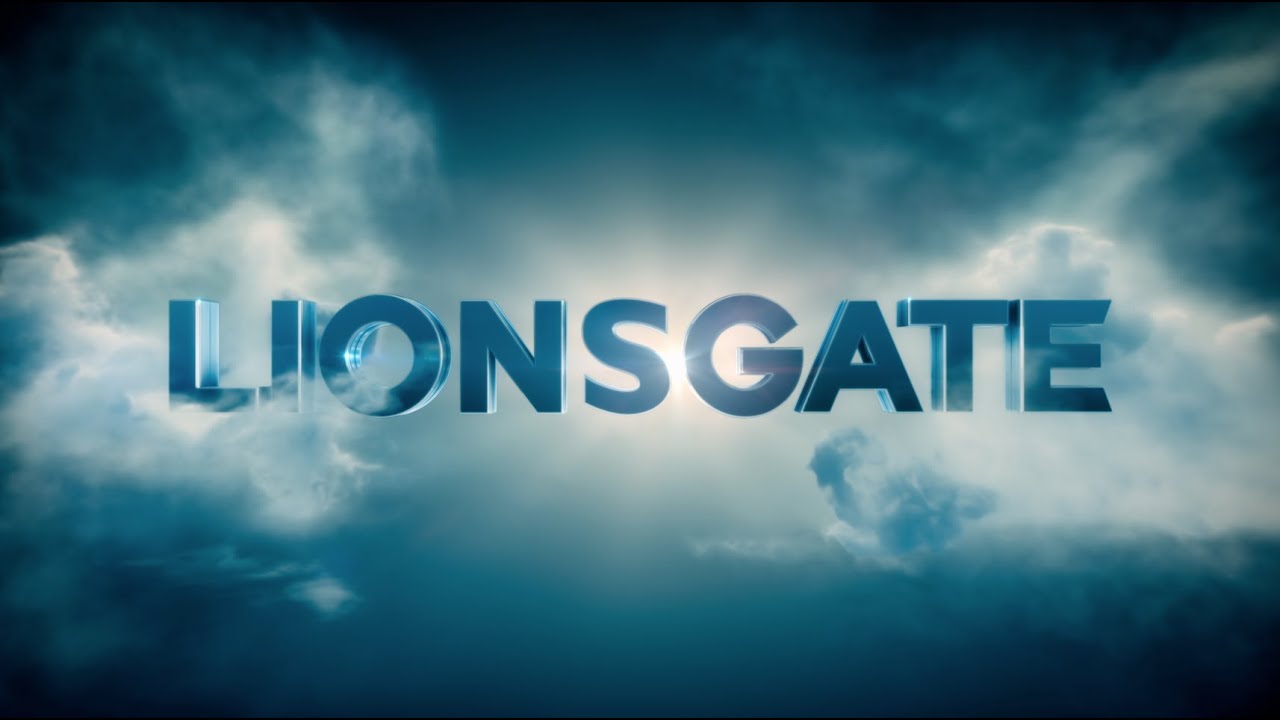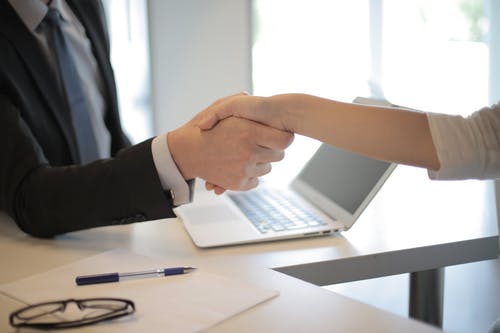A Post-Breakup Guide to Letting Go and Moving On3

I’m a glass-half-empty kind of girl, so I didn’t really expect my 40s to be a barrel of laughs.
On the other hand, I also didn’t expect them to be filled with nonstop doctor visits or a low-grade but constant nagging worry about my husband’s mortality.
Thank Christ I got my midlife crisis out of the way in my early 40s. Evidently we’re old people now.
In 2019, before the world fell apart in a big way, my own world very nearly fell apart as well.
It was a shitty year, full stop. My mom had a stroke in March, in April I lost a small local election when I ran city councilperson, and then my husband put the icing on the cake in November when he came home from work one day and said, “I’ve been having some pains in my chest, so I just went to the doctor and he ran some tests.”
Turned out those tests involved one for a chemical the heart emits after heart attacks, and it was positive. The day after that announcement my 42-year-old husband had a cardiac stent placed, and while the doctor inserted it, my husband had another heart attack.
It was scary as hell, particularly during the whole heart attack bit, when a very nice but somewhat worried looking nurse informed me that they had to transfer my husband — while he was having a heart attack — to a hospital across town, so they could do a heart bypass surgery. But then, suddenly, it got better: the same nurse came back, looking slightly less worried (God love nurses with honest faces), and said the doctor had been able to get a stent placed in my husband’s artery, the heart attack had stopped, and bypass surgery would not be necessary.
Two days after that my husband came home with a lot of new medications — all the more surprising because up to then, he’d been on no medications and we’d had no idea he had coronary artery disease — and some big bruises on his wrists and in his groin where the doctor had inserted the arterial catheters.
But: he came home.
I knew then, and I know now, that there were other ways this little story could have ended.
Two years later, we’re still feeling really lucky. My husband has regular check-ups; when you take lots of heart, blood pressure, and cholesterol meds, it turns out they want to check your other organs frequently to make sure the medications aren’t affecting them adversely. All of his numbers have been good. He has never been overweight, and we have always tried to eat a healthy diet, but we have implemented whatever diet changes we could (lots of salmon, sardines, brown rice instead of white, soy milk in the place of dairy and no cheese). He works out or lifts weights every day.
He has never complained about any of that.
Or, I should say, he has never verbally complained. The first time we ordered takeout pizza without cheese for him, his eyes were a little sad. He really loved regular pizza.
And then a few weeks ago, while running, he thought he felt a bit of a tightness in his chest. And maybe a bit of muscle pain in his left arm.
You know if you know anyone with heart problems, the minute they say anything about their left side, you go into high alert.
My husband did say these symptoms didn’t feel exactly like the symptoms he’d had two years ago, that had sent him to the doctor then. He actually can’t figure out if it’s the same kind of pain, or if it’s standard chest and muscle tightness because he hasn’t been able to do as much true cardio as he’d like (we didn’t feel he could go to his regular gym this past year), and it’s not consistent. He also worries that he’s on high alert, hyper-aware of every last little bodily sensation.
I asked him to write a quick question to his doctor anyway.
He did, and in a couple of days he’s going in for a nuclear stress test, where they’ll inject some radioactive dye into his bloodstream and make him run on a treadmill. We’ll see what we learn.
Now, I don’t want to be over-dramatic. This is one of those situations where, if you talk to any other people or ever scan Internet health chats or question threads, you realize that, if everyone chucked their problems in the middle, you’d probably still grab your own problem back and feel thankful you don’t have it any worse.
Still.
In 2019, after my husband came home from the hospital, sometimes I would wake up in the middle of the night and think, oh my God, what would I do now if he had died from the artery blockage that had been discovered? What if he’d ignored his symptoms and just kept on going, and then collapsed somewhere just while walking up a hill?
Every time I slapped on my mask for my once-every-two-weeks megatrip to the grocery store at the height of Covid, and left the boys home with their dad, I thought, how difficult would this everyday task be if he weren’t here?
Sometimes he makes me laugh or uses some of our shorthand (like, simply, a derisive “people,” muttered to each other when we see someone being an asshole) or says something beautifully bitter or sarcastic, which is when I know I’ve rubbed off on him, just a little bit, and I think, This person is my friend. What would I do without my friend?
What would my young sons do without their father?
I never thought I would be asking myself these questions at 46. Even us glass-half-empty girls kinda thought truly “old” might hold off until at least 50.
That’s it. I don’t have any answers for you, or a nice little conclusion wherein I tie this all together and share a life lesson with you.
I don’t know how long my husband has. I don’t know how long I have. In all honesty, I don’t know how long my sons have. Any day can bring anything, and to many people, it already has. The only thing I really feel I’ve learned from the Internet (and from reading a shit-ton of memoirs) is that we none of us are owed anything. People are born and grow up and die (mostly too early) in war zones. Children are born into families that abuse them. Any time you drive on the highway could be the last time you do anything. A world pandemic comes along and all bets are off.
When you’re a glass-half-empty person, you do a lot of worrying and planning and desperate praying.
And then one day you begin to realize it’s all out of your control. So you get up, step away from the computer, and you go do your work and you care for your family and you try not to think about tomorrow’s stress test.
All you have right now, you realize, is right now.
It’s a gift, and it’s enough, even though it will never be enough.
The text conversation started promising. In his pictures, Derek* had librarian glasses, a devil-may-care grin, AND he was wearing a shirt. He asked thought-provoking questions and shared intriguing details about his passion for falconry. Best of all, he didn’t waste my time with weeks of text exchanges and went right for the brass ring — he asked me out to dinner.
Finally…a grownup (who might be a wizard in disguise). Sign me up for that. But first, a question — “Derek, have you been vaccinated?”
His answer deflated my enthusiasm.
“No, it is only killing old people now. I don’t see the point.”
(Big sigh) I did see the point. Clearly, Derek’s grandmother didn’t hug him enough as a child. And just when I was about to feed him my usual scare tactic studies about how men who get Covid become that frisbee-throwing, old guy in the ED commercial…I stopped myself.
What was the point? I wished Derek good luck in his search for love and unmatched.
It’s become my most important pre-screening date question — have you been vaccinated? It’s not because I don’t feel safe (I am fully vaccinated.) It is because deciding not to get vaccinated makes you really unsexy.
Let me be clear. I have no desire to shame anti-vaxxers and flash my Scarlet P. It’s really easy for me to have no fear. I am not part of the demographic that was tortured in the name of science.
(A brief interlude for a history lesson.)
Oh, where to start? How about the Tuskegee experiment where we woefully let Black people die of syphilis to see how bad syphilis could get. (Spoiler alert: It got BAD.) And how about that time we performed experimental hysterectomies on Black women…without anesthesia. Because you know…scientists thought Black people couldn’t feel pain. (Spoiler art: they did.) And let’s not forget when we dropped malaria mosquitoes on Black neighborhoods just to see what would happen. Nice work, scientists.
And in case you think using minorities as guinea pigs is in some distant past, let’s remember it was the 1990s when medical researchers gave a banned diet drug, fenfluramine, to dozens of African-American and Hispanic boys. That little experiment gone awry was to see if the drug could predict if the boys were likely to become criminals as adults. (It did not.)
Yeah. Good job, America. We did all that…and more.
But America’s dark medical history is not the only reason why people are refusing vaccinations.
A recent study sought to classify anti-vaxxers by their reasons.
There are the Covid Skeptics — these are the people who believe the government is microchipping them with the vaccine and that Alex Jones is the next messiah. The research found they are the least likely to change their minds. Your best bet is to tell them the vaccine cured your male pattern baldness (even if you are a woman) and allowed you to talk to your cat.
Next, we have the System Distrusters — these people mistrust the healthcare system, mostly because the healthcare system has not always proven trustworthy. (Refer back to my little history diatribe.) Often people’s fears grow out of a past that taught them to fear. These people are reachable. They just need a little handholding.
The next group is the Cost-Anxious — these people fear the economic cost of getting vaccinated. They cannot afford to lose work hours due to side effects, so they soldier on. These people just need their economic obstacles removed.
Lastly, are the Watchful — these cautious people are the “you first” group and are waiting to see the side effects before committing to vaccinations. These are the same people who ask questions like, “does this taste funny to you?” Again, these people might come around.
But I feel the researchers missed a group. And it is a group who are very intractable in their anti-vaccination stance — the Selfish.
This particular flavor of anti-vaxxer is waiting for the world to reach herd immunity. They eschew vaccinations because they are expecting their neighbors to protect them. In other words, they are banking on the vaccinated to do the hard work of saving humanity. And that is a douchebag move.
There I said it. Accuse me of virtue signaling or some other psychobabble that condemns me for avoiding assholes.
But it is the people with this “the pandemic is over” stance and “it’s my right to go unvaccinated…just because” who I want to tie up and stab with all three vaccines.
In 1901, we did just that with smallpox vaccinations. Authorities raided tenant apartments of the unvaccinated in the middle of the night. One person held down the anti-vaxxers while the other stabbed their arm. Ah, the good ole days…
Perhaps I was born in the wrong century, but those grandmothers most likely to die from Covid have a scar on their arm from when they all stood in line and got the mandatory smallpox vaccination. The main reason why we were able to eradicate smallpox is because of forced vaccination.
Authorities understood what we seem to have forgotten today — the purpose of vaccinations is not to protect the individual. The purpose of vaccinations is to protect society.
It’s possible that selfish anti-vaxxers are not admitting to their fear of vaccination. They might be taking a cavalier attitude because it seems far cooler not to get vaccinated out of indifference than it does fear.
Well, cowboy, there isn’t any shame in fear. Admitting that vulnerability actually makes you really sexy. (Although I will debate the science with you and tell you your dick will fall off.)
What is harder to stomach is not caring about your fellow human.
Please care. Get vaccinated.
https://www.geogebra.org/m/ggawwn98
https://www.geogebra.org/m/n3n7q3p5
https://www.geogebra.org/m/rbwm36kv
https://www.geogebra.org/m/brbggxmr
https://www.geogebra.org/m/xbyuhsh9

Get Quick Cash For Cars Toowoomba Services In 2021
- Cash for cars Toowoomba" are words that should ring true for you. "cash for cars Toowoomba" is an online website that offers cash for cars servic

getting. A curriculum Huawei Certified Datacom Professional that3
- getting. A curriculum Huawei Certified Datacom Professional that needs an individual to impart on the youngster the consciou3

10 Tips To Give Your Tenders A Successful Edge
- The competition to win new contracts is fierce. Whether you’re competing for a tender of a private or government organisation

In-Vitro Diagnostics Market Industry Analysis and Forecast 2019-2025
- In-Vitro Diagnostics Market Worth US$ 98.18 billion - UnivDatos Industry Analysis- by Size, Share, Growth, Trends, and Forecast 2019-2025